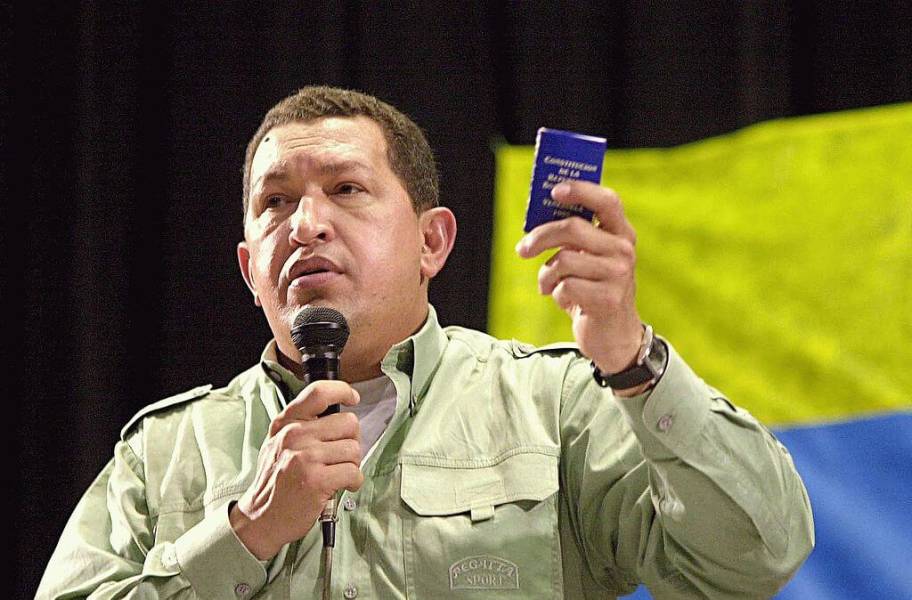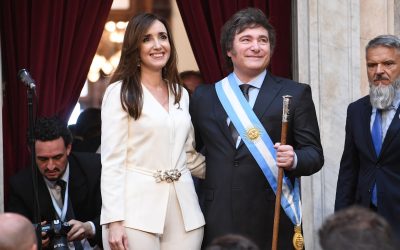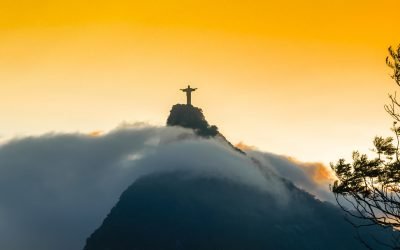Venezuela descends into chaos. Its people, once the wealthiest in Latin America, starve. Even The New York Times runs headlines like “Dying Infants and No Medicine.”
My Venezuelan-born friend Kenny says his relatives are speaking differently. Cousins who once answered “Fine” or “Good” when asked, “How are you?” now say, “We’re eating.”
Eating is a big deal in the country that’s given birth to jokes about a “Venezuelan diet.” A survey by three universities found 75 percent of Venezuelans lost an average 19 pounds this year.
So are American celebrities who championed Venezuela’s “people’s revolution” embarrassed? Will they admit they were wrong?
“No,” says linguist and political writer Noam Chomsky. “I was right.”
Sigh.
Actor Sean Penn met with Hugo Chavez several times and claimed Chavez did “incredible things for the 80 percent of the people that are very poor.”
Oliver Stone made a film that fawned over Chavez and Latin American socialism. Chavez joined Stone in Venice for the film’s premiere.
Michael Moore praised Chavez for eliminating “75 percent of extreme poverty.”
Hello?! In Venezuela, Chavez and his successor, Nicolas Maduro, created extreme poverty.
Chomsky, whose anti-capitalist teachings have inspired millions of American college students, praised Chavez’s “sharp poverty reduction, probably the greatest in the Americas.” Chavez returned the compliment by holding up Chomsky’s book during a speech at the U.N., making it a best-seller.
Is Chomsky embarrassed by that today? “No,” he wrote me. He praised Chavez “in 2006. Here’s the situation as of two years later.” He linked to a 2008 article by a writer of Oliver Stone’s movie who said, “Venezuela has seen a remarkable reduction in poverty.”
I asked him, “Should you now say to the students who’ve learned from you, ‘Socialism, in practice, often wrecks people’s lives’?” Chomsky replied, “I never described Chavez’s state capitalist government as ‘socialist’ or even hinted at such an absurdity. It was quite remote from socialism. Private capitalism remained … Capitalists were free to undermine the economy in all sorts of ways, like massive export of capital.”
What? Capitalists “undermine the economy” by fleeing?
I showed Chomsky’s email to Marian Tupy, editor of HumanProgress.org. I like his response: “If lack of private capitalism — I assume he means total abolition of private enterprise and most private property — is his definition of socialism, then only North Korea and Kampuchea qualify.”
Tupy also asks how Chomsky thinks “capitalists sabotaged the economy by taking money out if capitalists are superfluous to a functioning economy.”
Good questions. Chomsky’s arguments are absurd.
As Tupy wrote elsewhere about another socialist fool, “As much as I would like to enjoy rubbing (his) nose in his own mind-bending stupidity, I cannot rejoice, for I know that Venezuela’s descent into chaos — hyperinflation, empty shops, out-of-control violence and the collapse of basic public services — will not be the last time we hear of a collapsing socialist economy. More countries will refuse to learn from history and give socialism ‘a go.’ ‘Useful idiots,’ to use Lenin’s words … will sing socialism’s praises until the last light goes out.”
I fear he’s right. This love for state planning is especially outrageous today because anyone who pays attention knows what does work: market capitalism.
Socialism failed in Angola, Benin, Cambodia, China, Congo, Cuba, Ethiopia, Laos, Mongolia, Mozambique, North Korea, Poland, Somalia, the Soviet Union, Vietnam and now Venezuela. We are yet to experience the blessed event of seeing one socialist country succeed.
Yet during the same years, capitalism brought prosperity to Hong Kong, Singapore, New Zealand, most of Western Europe, and years ago, to a mostly poor and undeveloped country we now call America.
In 1973, when Chile abandoned its short-lived experiment with socialism and embraced capitalism, Chilean income was 36 percent that of Venezuela. Today, Chileans are 51 percent richer than Venezuelans. Chilean incomes rose by 228 percent. Venezuelans became 21 percent poorer.
Venezuela has greater oil reserves than Saudi Arabia. But because some people believe socialism is the answer to inequality, Venezuelans starve.
What should Venezuela do once the tyrant falls?
It should do what Dubai and Hong Kong did, and what America should do next with Guantanamo Bay and Puerto Rico: create “prosperity zones.” I’ll explain in my next column.




